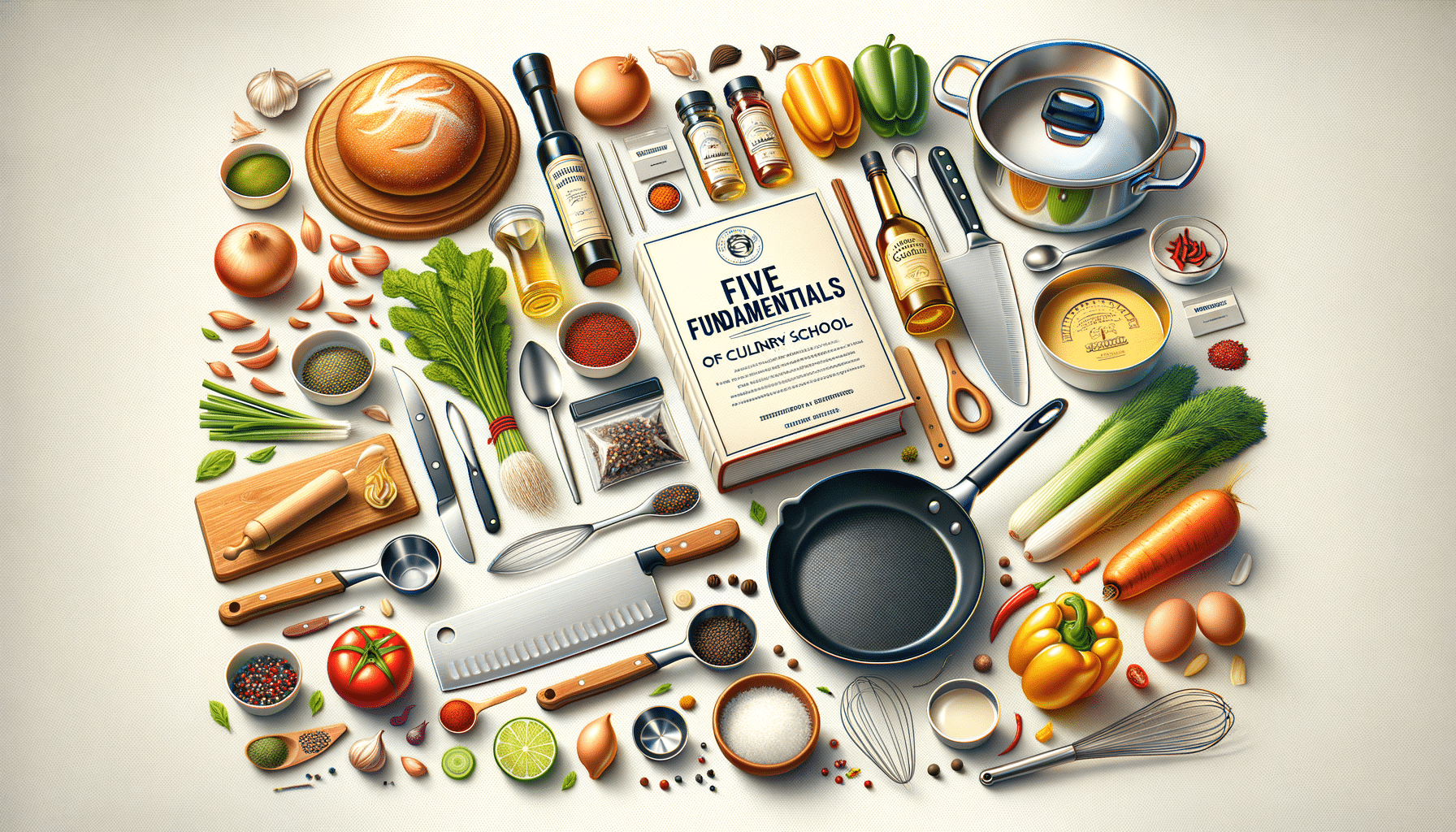
Beginner Cooking? Start With These 5 Fundamentals From Culinary School
Introduction to Culinary Fundamentals
Cooking is an art and a science, a delightful blend of creativity and precision. For beginners, it can seem daunting, but understanding a few fundamental techniques can greatly enhance your culinary journey. This article explores five essential cooking tips that form the backbone of culinary school teachings. Implementing these fundamentals can transform your cooking from basic to exceptional, making everyday meals both enjoyable to prepare and delicious to eat.
Mise en Place: The Art of Preparation
Mise en place, a French culinary phrase meaning „everything in its place,“ is a cornerstone of efficient cooking. This technique involves preparing and organizing all ingredients before you start cooking. By having everything measured, chopped, and ready to go, you can focus on the cooking process itself, reducing stress and mistakes. Consider mise en place as your roadmap to a smooth cooking experience, ensuring that nothing is left to chance.
Benefits of mise en place include:
- Time efficiency: Reduces cooking time by having everything ready.
- Improved focus: Allows you to concentrate on cooking techniques.
- Less stress: Minimizes the likelihood of forgetting ingredients.
By adopting mise en place, you’ll find that cooking becomes more enjoyable and less of a chore, allowing you to unleash your creativity in the kitchen.
Understanding Heat: Control and Patience
Cooking is all about controlling heat. Knowing when to use high, medium, or low heat can dramatically affect the outcome of your dishes. High heat is great for searing meats, while medium heat is ideal for sautéing vegetables. Low heat is perfect for simmering sauces and soups, allowing flavors to develop gradually. Patience is key here; rushing the process can lead to burnt or undercooked food.
Practical tips for heat control include:
- Preheat pans before adding ingredients to ensure even cooking.
- Use a thermometer to monitor internal temperatures, especially for meats.
- Adjust heat levels as needed to maintain the desired cooking pace.
Mastering heat control requires practice, but once achieved, it opens up a world of culinary possibilities, making your dishes consistently delicious.
Knife Skills: Precision and Safety
Knife skills are fundamental in any kitchen. Proper techniques not only ensure safety but also improve the presentation and cooking of your food. A sharp knife is safer and more efficient than a dull one, as it requires less force and allows for more precise cuts. Learning how to chop, dice, and julienne can significantly enhance your cooking efficiency and the aesthetics of your dishes.
Key knife skills to practice:
- Chopping: For quick and uniform pieces.
- Dicing: For small, even cubes, perfect for salsas and salads.
- Julienning: For thin, matchstick-like pieces, great for stir-fries.
Investing time in developing your knife skills is an investment in your culinary future, making cooking more enjoyable and less time-consuming.
Seasoning: The Balance of Flavors
Seasoning is an art that can elevate a dish from ordinary to extraordinary. Understanding the balance of flavors—salty, sweet, sour, bitter, and umami—is crucial in creating well-rounded dishes. Salt enhances flavors, while acids like lemon juice or vinegar can brighten a dish. Sweetness can balance out acidity, and a touch of bitterness can add depth.
Tips for effective seasoning include:
- Taste as you go: Adjust seasoning gradually to avoid overpowering flavors.
- Use fresh herbs and spices for more vibrant flavors.
- Experiment with different flavor combinations to find what suits your palate.
Seasoning is a skill that improves with experience, and by honing this ability, you can make any dish truly unforgettable.
Conclusion: Embrace the Culinary Journey
Cooking is a lifelong journey of learning and exploration. By mastering these fundamental techniques—mise en place, heat control, knife skills, and seasoning—you lay a solid foundation for all your culinary endeavors. These skills not only make cooking more efficient and enjoyable but also empower you to express your creativity and passion in the kitchen. Whether you’re preparing a simple meal or an elaborate feast, these tips will guide you to culinary success.